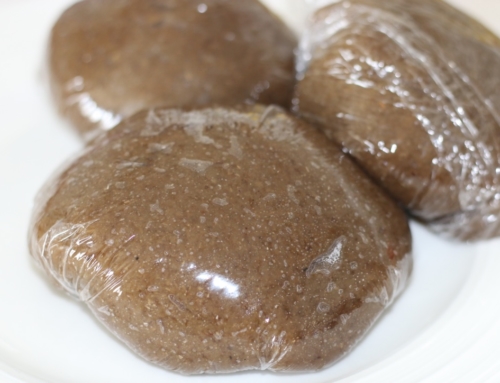Every day the media tells us everything we do is making us fat or just plain killing us. Drink ten glasses of water a day or you’ll die. Beans makes you grow tall. Beer and six-pack abs don’t go together. Gluten is the devil. Carbs = fat.
Fortunately, lifehacker teamed up with a couple doctors to debunk a few of the most common myths. Coincidentally, most of them had to do with fat and losing weight.
Maybe we can get some doctors to debunk my myths above :D.
1. Eating Fatty Food Makes You Fat
“Eating fatty foods does not make you fat. Fat in moderation is a necessary part of any healthy and balanced diet. Putting on more weight in the form of fat is a result of energy imbalance. You will gain weight if you take in more calories than you burn. Fat is a concentrated source of calories, but it is not necessary to eliminate fat from your diet completely.”
2. Eating Carbs Makes You Fat
“a Pop-Tart (carbohydrate-rich) and a pear (also carbohydrate-rich) are not the same thing. The problem is refined and highly processed carbohydrates, which can trigger cravings.”
“It is a good idea to limit the number of carbs you eat in the form of sugar because sugar is low in nutritional value and high in calories. However, if you eliminate carbs completely, you will miss out on healthy food such as whole grain breads and wheat pastas. You will only gain weight if you consume more calories than you burn.”
3. MSG is Bad For You
MSG – Monosodium glutamate. In my head, it’s what makes Asian food so addictive (we’ll debunk that some other day)
“MSG is commonly demonized as giving people headaches, and it’s possible that some people are more sensitive to MSG or currently unknown reasons; these people can avoid MSG and treat it like some manner of allergen, but this doesn’t mean that it is inherently bad (we don’t know). MSG is often cited as causing obesity, but that is induced in mice with direct injections into the brain and ‘supported’ by binges at Chinese food establishments.”
4. High Fructose Corn Syrup Is Worse Than Sugar
“The content of fructose in both options (sucrose and HFCS) are pretty much similar, and if you ate enough HFCS for the extra 5% to matter then you over-consumed any type of sugar. There are no other known differences between these two sugars, and that one Princeton study saying otherwise has not only failed to have been replicated but is more than likely just misleading data.”
5. Gluten-free Foods Are Healthier
“If you are celiac or gluten sensitive, gluten is problematic. Otherwise, the body is technically able to process gluten. The absence of gluten in a food does not automatically make it healthier (soda is gluten-free). A lot of gluten-free breads are made with refined starches, which are not healthful. While I think many people can tolerate gluten just fine, I also don’t get concerned if someone tells me they feel better when they don’t eat it. Shunning gluten from your diet doesn’t put you at any sort of nutritional risk.”
6. Everyone Needs to Poop Daily
“No single bowel movement schedule is right for everyone. However, staying hydrated, eating foods high in fiber, and being active will help ensure that your schedule is regular and you do not become backed up.”
7. Microwave Kills The Nutrients In Foods
“Microwaving can kill some nutrients (sulforaphane from broccoli, for example) but this does not extend to all nutrients. Unfortunately, we need to look at this stuff on a case by case basis to see which foods you should microwave and which you cannot since there is no rhyme or reason to which compounds are damaged or inactivated. In general, microwaving is not a serious concern.”
8. You’ll lose a Pound of Fat Every 3,500 Calorie You Burn
“Technically you do lose a pound for every 3,500 calories, and we could calculate this if our methods for calculating energy expenditure and intake were perfect. Unfortunately we do not have perfect equations right now, so while a pound of fat does have about 3,500kcal in it we tend to lose a pound of fat when our diets give us somewhere between a 2,000 and 5,000 caloric deficit (because we calculated something wrong).”
Why the variance?
“This statement is partially true. You do lose one pound for every 3500 calories burned (generally speaking), but that loss isn’t actually all fat. It’s a combination of fat plus a modest amount of water and other forms of tissue.”
9. Spot Training Helps You Burn Fat In Specific Areas
Spot training is essentially focusing your exercise towards a certain part of your body.
“Doing sit-ups (or another type of spot training) will strengthen the abdominal muscles, but will not burn fat specific to that area. Fat is burned or lost throughout the body on a more even basis, and is accomplished through aerobic or cardiovascular exercise. Omegle Videos Porn Collection The pattern of fat gain or loss has more to do with each person’s unique body than it does with the type of aerobic exercise performed.”
10. The Scale is a Good Way To Help You Manage Your Fat Loss Progress
“Using the scale is not the best way to track the progress of a healthy diet and exercise. The scale treats both fat and muscle the same way – a pound of fat is the same as a pound of muscle. If you’re strengthening your muscles during your exercise regimen, you might actually see a small amount of weight gain rather than weight loss, which is not a bad thing. A better way to track the progress of diet and exercise is to monitor how you feel and how you look. Your local fitness center may also be able to help with measuring your percent body fat.”
source: lifehacker.com





No 1 is such a huge myth! I can eat a truck load of fatty food and still remain as skinner as ever. Waiting for the baby bump to make a difference.